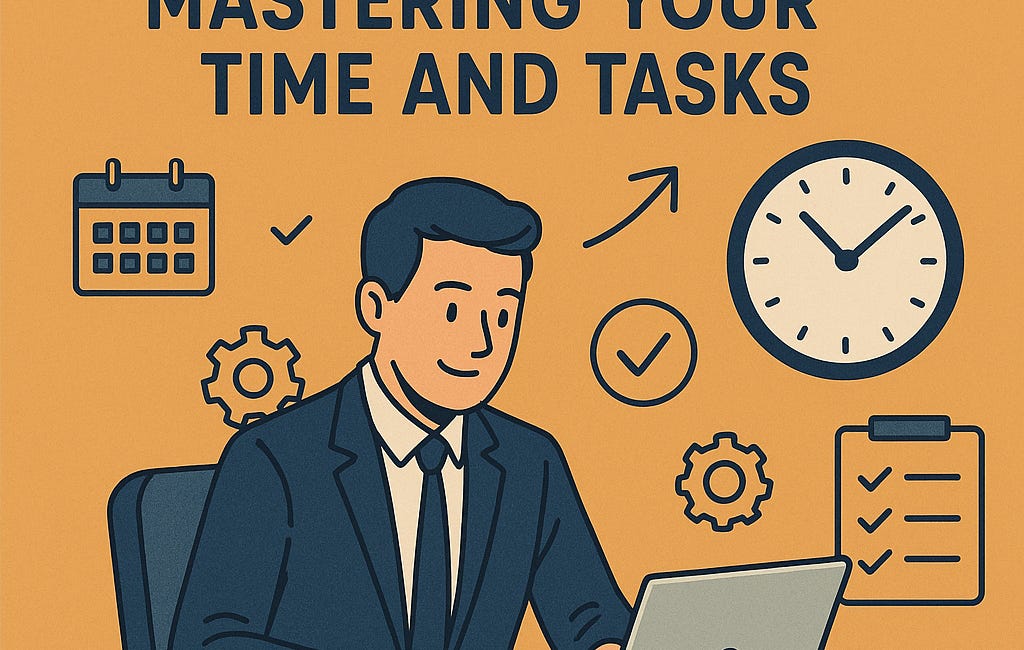The Efficiency Trap: When Optimization Goes Too Far
It turns out, the drive for ultimate efficiency can lead us down some surprisingly detrimental paths.
In our relentless pursuit of productivity, "efficiency" has become a golden word. We strive to optimize every minute, streamline every process, and eliminate all waste. And while a healthy dose of efficiency is undoubtedly beneficial, what happens when we push it to the extreme? What are the hidden costs of being too efficient?
It turns out, the drive for ultimate efficiency can lead us down some surprisingly detrimental paths.
The Diminishing Returns of Hyper-Efficiency
1. The Erosion of Creativity and Innovation
Efficiency thrives on predictability and established processes. Creativity, however, often flourishes in unstructured environments, during moments of idleness, or even from "wasted" time. When every second is accounted for, every task optimized, there's little room for:
Serendipitous discoveries: Those "aha!" moments often come when your mind is wandering, not when it's laser-focused on a task list.
Experimentation: Efficiency discourages trial-and-error, as it prioritizes the shortest path to a known outcome. Innovation, by its nature, requires exploring unknown paths, many of which will be "inefficient" dead ends.
Deep thinking: Truly complex problems often require prolonged, unhurried contemplation, not a scheduled 25-minute Pomodoro slot.
2. Increased Stress and Burnout
The constant pressure to be "on" and optimize every moment can be incredibly taxing.
No breathing room: When your schedule is packed to the brim with optimized tasks, there's no buffer for unexpected issues, personal needs, or simply moments of rest.
Guilt over downtime: Hyper-efficient individuals often feel guilty if they're not constantly productive, leading to a relentless self-imposed pressure that inevitably results in burnout.
Mental fatigue: The brain needs breaks to consolidate information and recharge. Over-optimization deprives it of this essential recovery time.
3. Neglect of Relationships and Well-being
If human interaction isn't "efficiently" contributing to a goal, it often gets deprioritized.
Transactional interactions: Relationships can become purely transactional, losing their warmth and depth, if every conversation is seen as a means to an end.
Isolation: Friendships and family bonds thrive on shared experiences, spontaneous moments, and often, inefficient conversations. Sacrificing these for productivity can lead to social isolation.
Health last: Exercise, healthy eating, and sufficient sleep are often seen as "inefficiencies" that cut into productive time, leading to neglected physical and mental health.
4. Loss of Flexibility and Adaptability
Highly optimized systems are often rigid. While they work flawlessly under ideal conditions, they struggle when the unexpected happens.
Fragility: A tightly optimized system has no slack. A single unexpected problem can derail the entire process, as there's no buffer to absorb the shock.
Resistance to change: Re-optimizing an entire efficient system is often perceived as too costly or time-consuming, leading to resistance to necessary changes or adaptations.
5. The Dehumanization of Work
When every task is broken down into its most efficient components, work can become monotonous and devoid of meaning.
Loss of craftsmanship: Focusing solely on speed and volume can diminish the joy and pride in doing work well, reducing it to a series of mechanical actions.
Lack of purpose: When tasks are hyper-specialized and optimized, individuals may lose sight of how their small, efficient contribution fits into the larger picture, leading to disengagement.
Finding the "Just Right" Balance
The goal isn't to abandon efficiency altogether. It's about recognizing that there's a point of diminishing returns, where the pursuit of maximum output begins to undermine creativity, well-being, and ultimately, true long-term effectiveness.
Instead of absolute efficiency, perhaps we should strive for "effective efficiency":
Strategic slack: Build in buffer time and allow for spontaneity.
Prioritize purpose over pace: Ensure your efficient actions are aligned with meaningful goals.
Value "unproductive" time: Recognize the importance of rest, reflection, and human connection for overall thriving.
Embrace the benefits of optimization, but be wary of the siren song of hyper-efficiency. Sometimes, the most productive thing you can do is to slow down, reflect, and allow for the glorious inefficiency of being human.
HOWEVER, efficiency can still be a good thing. Read…
The Efficiency Edge: Mastering Your Time and Tasks
We all have the same 24 hours in a day, yet some people seem to accomplish so much more. The secret? They've mastered the art of efficiency. Being efficient isn't about rushing; it's about optimizing your efforts, minimizing wasted time, and maximizing your output. Ready to level up your productivity game? Let's dive in!





